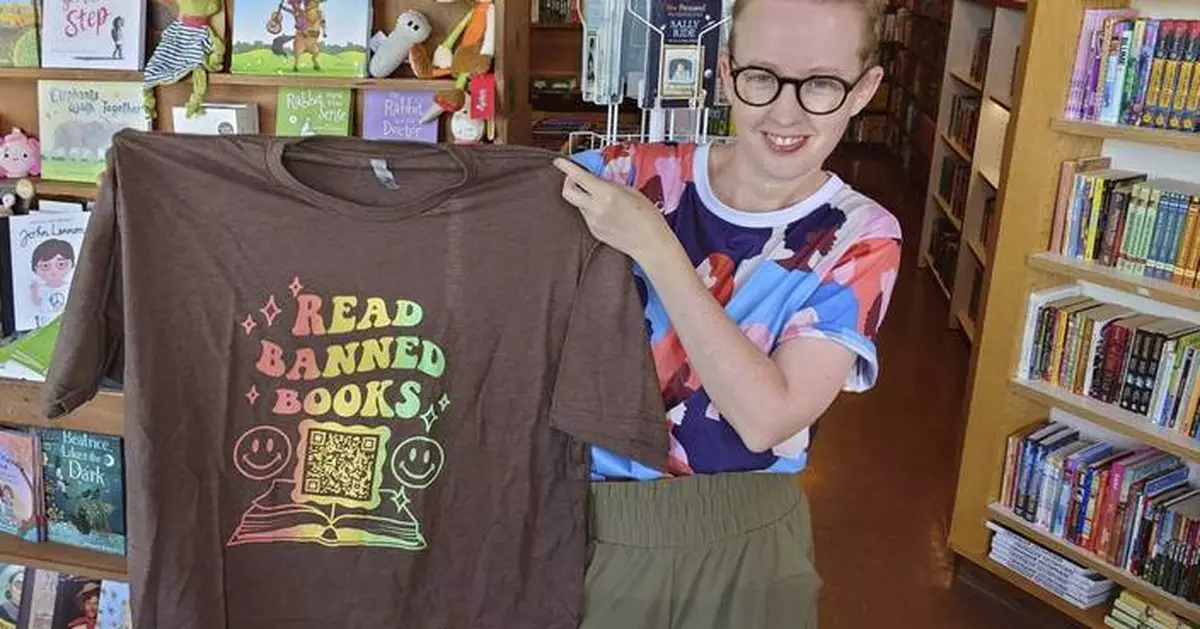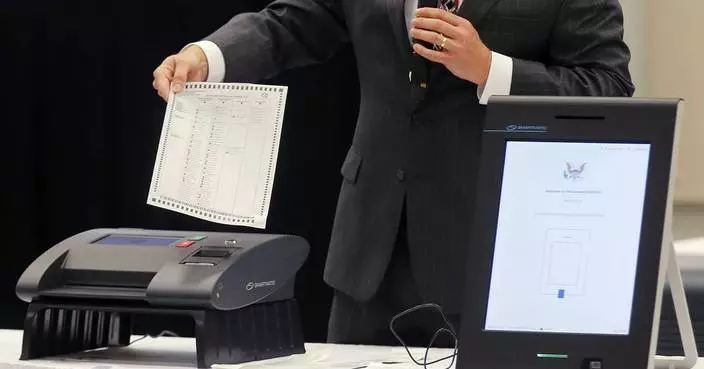Oklahoma's education board has revoked the license of a former teacher who drew national attention during surging book-ban efforts across the U.S. in 2022 when she covered part of her classroom bookshelf in red tape with the words “Books the state didn't want you to read.”
The decision Thursday went against a judge who had advised the Oklahoma Board of Education not to revoke the license of Summer Boismier, who had also put in her high school classroom a QR code of the Brooklyn Public Library’s catalogue of banned books.
An attorney for Boismier, who now works at the Brooklyn Public Library in New York City, told reporters after the board meeting that they would seek to overturn the decision.
“I will not apologize for sharing publicly available information about library access with my students,” the former teacher posted on X. “My livelihood will never be as important as someone’s life or right to read what they want.”
Brady Henderson, Boismier’s attorney, and the office of Oklahoma State Superintendent Ryan Walters did not immediately respond to phone messages seeking comment Friday.
Boismier, a fervent reader with a passion for fantasy novels, had been teaching English for nine years when she was involuntarily thrust into the center of Walters’ campaign for statewide office in August 2022. She received threats on social media and was accused of being part of a broader movement led by teachers to influence children’s political beliefs. Boismier resigned soon after.
She said at the time that she had hoped to spark a discussion about Oklahoma legislators’ book restrictions and a new law prohibiting lessons on critical race theory and other concepts about race and gender. Instead, she was summoned to a meeting with school administrators after a parent complained.
Walters, who was a candidate for Oklahoma's top education office when Boismier was teaching, had called on the board in 2022 to revoke her teaching license in a letter he shared on social media.
“There is no place for a teacher with a liberal political agenda in the classroom,” Walters had wrote. He accused her of providing “banned and pornographic material” to students.
Walters said at Thursday's meeting that Boismier violated rules that prohibit instruction on topics related to race and gender. He told reporters that she “broke the law.”
Boismier has maintained that she did nothing wrong.
Teachers in public schools across the country continue to face scrutiny at the local and state level as lawmakers in Republican-led statehouses push forward with book bans and restrict curriculum on issues related to race, gender, and sexuality such as in Iowa and Utah.
Lathan is a corps member for The Associated Press/Report for America Statehouse News Initiative. Report for America is a nonprofit national service program that places journalists in local newsrooms to report on undercovered issues.

FILE - Former Norman High School English teacher Summer Boismier holds up a T-shirt with a QR code link to the Brooklyn Public Library at the Green Feather Book Company in Norman, Okla., on Oct. 6, 2022. (AP Photo/Sean Murphy, File)
BOSTON (AP) — A study that explores the feasibility of using pigeons to guide missiles and one that looks at the swimming abilities of dead fish were among the winners Thursday of this year’s Ig Nobels, the prize for comical scientific achievement.
Held less than a month before the actual Nobel Prizes are announced, the 34th annual Ig Nobel prize ceremony at the Massachusetts Institute of Technology was organized by the Annals of Improbable Research magazine’s website to make people laugh and think. Winners received a transparent box containing historic items related to Murphy’s Law — the theme of the night — and a nearly worthless Zimbabwean $10 trillion bill. Actual Nobel laureates handed the winners their prizes.
“While some politicians were trying to make sensible things sound crazy, scientists discovered some crazy-sounding things that make a lot of sense,” Marc Abrahams, master of ceremonies and editor of the magazine, said in an e-mail interview.
The ceremony started with Kees Moliker, winner of 2003 Ig Noble for biology, giving out safety instructions. His prize was for a study that documented the existence of homosexual necrophilia in mallard ducks.
“This is the duck,” he said, holding up a duck. “This is the dead one.”
After that, someone came on stage wearing a yellow target on their chest and a plastic face mask. Soon, they were inundated with people in the audience throwing paper airplanes at them.
Then, the awards began — several dry presentations which were interrupted by a girl coming on stage and repeatedly yelling “Please stop. I'm bored.” The awards ceremony was also was broken up by an international song competition inspired by Murphy's Law, including one about coleslaw and another about the legal system.
The winners were honored in 10 categories, including for peace and anatomy. Among them were scientists who showed a vine from Chile imitates the shapes of artificial plants nearby and another study that examined whether the hair on people's heads in the Northern Hemisphere swirled in the same direction as someone's hair in the Southern Hemisphere.
Other winners include a group of scientists who showed that fake medicine that causes side effects can be more effective than fake medicine that doesn't cause side effects and one showing that some mammals are cable of breathing through their anus — winners who came on stage wearing a fish-inspired hats.
Julie Skinner Vargas accepted the peace prize on behalf of her late father B.F. Skinner, who wrote the pigeon-missile study. Skinner Vargas is also the head of the B.F. Skinner Foundation.
“I want to thank you for finally acknowledging his most important contribution,” she said. “Thank you for putting the record straight.”
James Liao, a biology professor at the University of Florida, accepted the physics prize for his study demonstrating and explaining the swimming abilities of a dead trout.
“I discovered that a live fish moved more than a dead fish but not by much,” Liao said, holding up a fake fish. “A dead trout towed behind a stick also flaps its tail to the beat of the current like a live fish surfing on swirling eddies, recapturing the energy in its environment. A dead fish does live fish things.”

Professor James Liao displays a stuffed fish while accepting a prize for physics for demonstrating and explaining the swimming abilities of a dead trout during a performance at the Ig Nobel Prize ceremony at Massachusetts Institute of Technology in Cambridge, Mass., Thursday, Sept. 12, 2024. (AP Photo/Steven Senne)
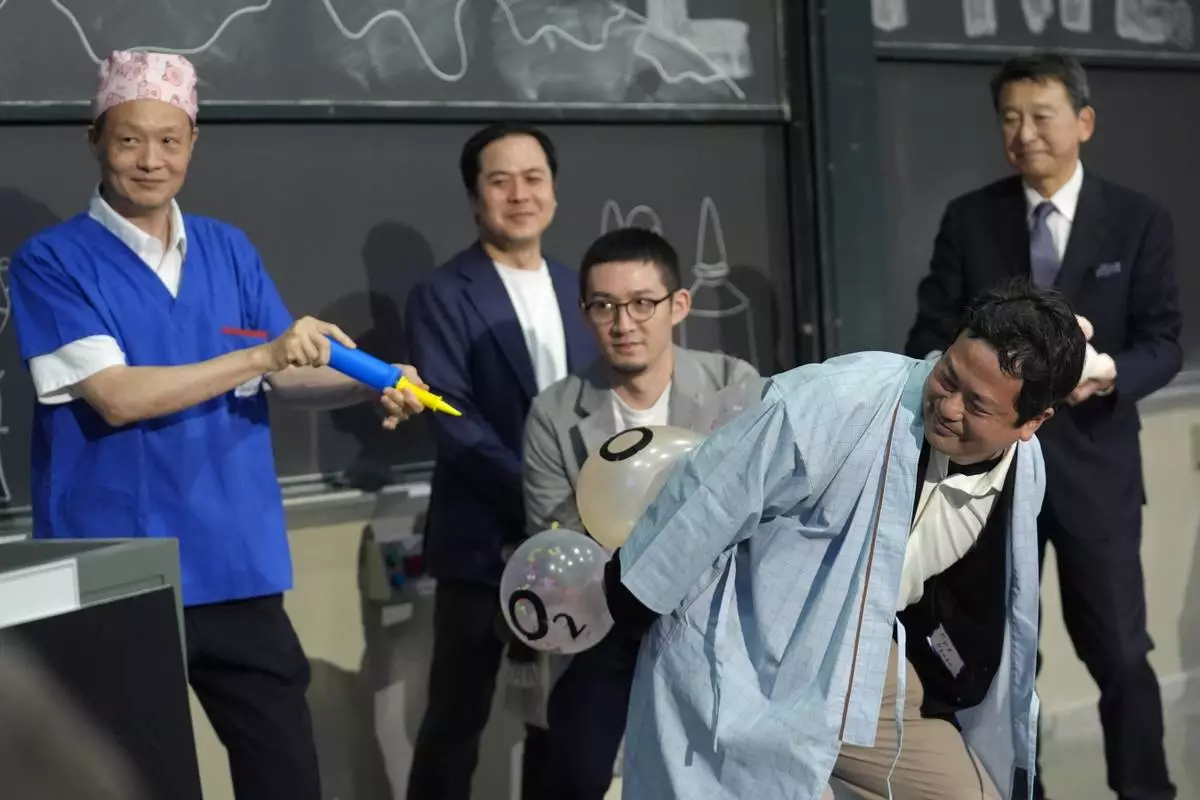
A team of researchers perform a demonstration during a performance showing that many mammals are capable of breathing through their anus while accepting the 2024 Ig Nobel prize in physiology at the Ig Nobel Prize ceremony at Massachusetts Institute of Technology, in Cambridge, Mass., Thursday, Sept. 12, 2024. (AP Photo/Steven Senne)
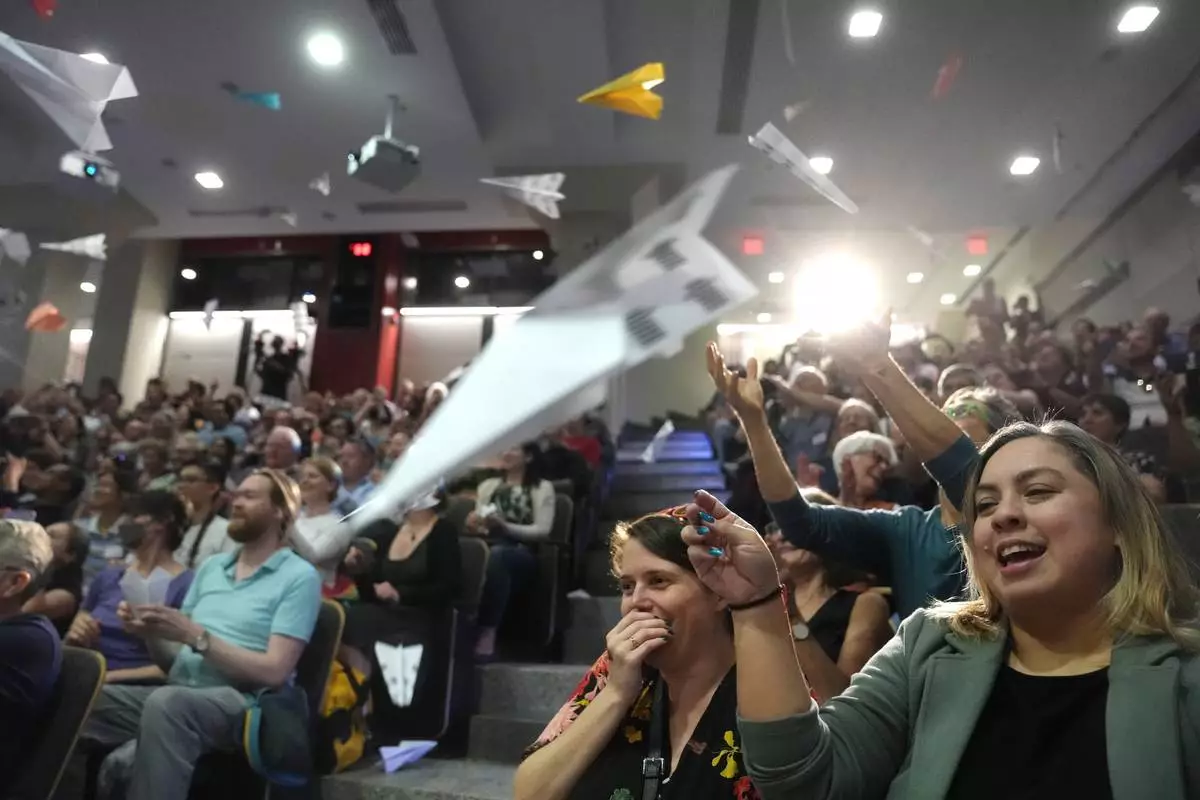
People in the audience throw paper airplanes toward the stage during a performance at the Ig Nobel Prize ceremony at Massachusetts Institute of Technology in Cambridge, Mass., Thursday, Sept. 12, 2024. (AP Photo/Steven Senne)
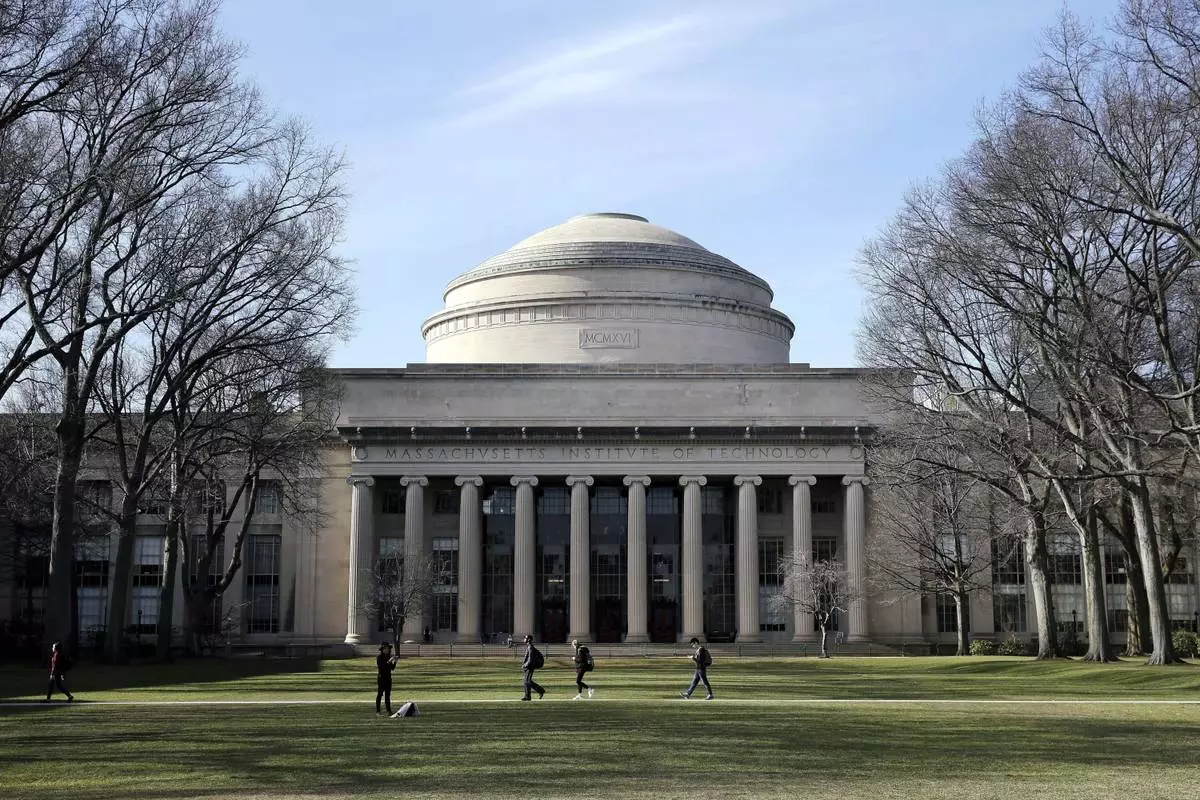
FILE - Students walk past the "Great Dome" atop Building 10 on the Massachusetts Institute of Technology campus in Cambridge, Mass, April 3, 2017. (AP Photo/Charles Krupa, File)



